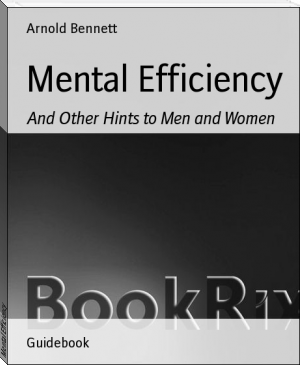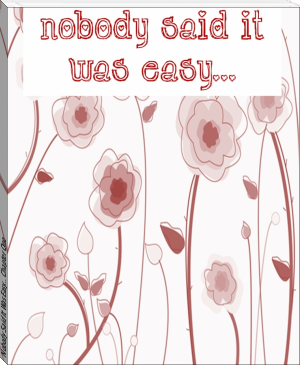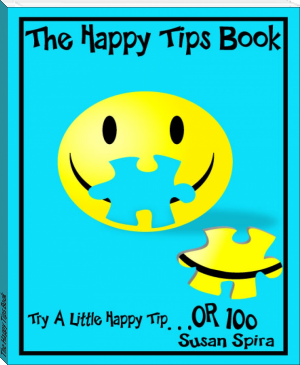Journalism for Women - Arnold Bennett (ebook reader play store .txt) 📗

- Author: Arnold Bennett
Book online «Journalism for Women - Arnold Bennett (ebook reader play store .txt) 📗». Author Arnold Bennett
That editors are invisible is taken for granted only by the inexperienced. Without doubt editors love to surround themselves with an atmosphere of mystery, aloofness, and sovereignty, but in truth they are human beings, and may be so treated. The invisibility of editors is mainly a legend. If you call at a newspaper office and, presenting your card, ask in a firm voice to see the editor, the probability is that you will see him, or some one else clothed with authority. You may be requested to state the nature of your business, in which case you will make the nature of your business as vague and enticing as possible. Possibly the editor, if he is timid, will invent the story that he is engaged; possibly he may really be engaged; in either case you will ask for an appointment, or wait; a personal interview is worth waiting for. If you are refused an appointment and also told that to wait would be useless, say that you will call to-morrow or the next day in the hope of the editor being then disengaged. In any event, be pertinacious; and do not fear to worry the man. By pertinacity you will eventually see him.
Having at last got sight of your editor, treat him considerately. Since you have conquered you can afford to show mercy. Explain yourself tersely, and let your visit be brief. Strive to impress by your directness and business-like thought and action.
Chapter IX
Notes on the Leading Types of Papers
In a previous chapter I have emphasised the urgency of examining with care and regularity all the principal papers. Nothing is more important to the outside contributor than a thorough comprehension of their various policies and their essential differences. Many beginners, with a quite creditable literary technique, render all effort futile by omitting to study what I may call the _characters_ of the publications to which they offer MSS. They know papers (except the one or two which they happen to read for pleasure) merely by name. They may by chance have some dim notion, gathered from hearsay, of the aim and spirit of this paper or that--but accurate, direct information concerning these things, they possess none. Having written an article, they send it to the first paper whose name enters their heads, without giving a single thought to the question of suitability. By such beginners the _Standard_, the _Sun_, and the _Morning Advertiser_ are recognised merely as so many dailies, the _Saturday Review_, _Tit-Bits_, and the _Bazaar_ merely as so many weeklies, and the _Strand_, _Macmillan's Magazine_, and the _Fortnightly_ merely as so many monthlies; and no doubt when their stuff has been refused by the _Standard_, they blithely forward it to the _Sun_, and so on.
Since the early failures of every aspirant are without doubt largely due to the neglect of this branch of journalistic learning, let me once more lay stress on the fact that every paper differs from every other paper in its needs--in what it demands from the outside contributor. Each paper has its own public, its own policy, its own tone, its own physiognomy, its own preferences, its own prejudices. These must be studied--as one would study a subject like zoology. And as in zoology, to acquire a useful knowledge, it is necessary to classify. The press divides itself naturally into a few distinctive groups, an acquaintance with whose characteristics will form the best, indeed the only, foundation for that wide, detailed erudition ultimately to be obtained through years of experience and observation. Of these groups I will briefly mention the most important.
* * * * *
Perhaps of all the different kinds of papers, that most useful to the beginner is the "popular weekly" class, chiefly represented by _Tit-Bits, Answers, Pearson's Weekly, Cassell's Saturday Journal_, and _Success_. These papers pay liberally and promptly (one or two of them before publication), and they do not exact from the contributor a high literary standard. Their matter falls into two main divisions: articles beginning with "How"--broadly, "How the other half lives;" and articles enumerating curious facts and incidents--for example, "Peers who have become Cabmen." If you can evolve novel and striking subjects, and have the patience to collect such information as may be necessary to work the subjects out, you may fairly rely upon gaining entrance sooner or later to the columns of these papers, however elementary your technique. Here is also a busy market for short melodramatic stories--stories for which "action" and a certain ingenuity of plot are the only essentials. Do not imagine that the editors of this sort of periodical are easily pleased. Although they care nothing for the graces of style, they know precisely what they want, and they insist on getting it.
Next to the popular penny weeklies as prey meet for the aspirant, I name the three "Gazettes," the _Pall Mall_, the _Westminster_, and the _St. James's_. These--the first two especially--make a point of their hospitality to the outside contributor. They appeal of course to a cultured class, and they are catholic in their tastes--ready for anything provided it is topical and well done. They pride themselves on being literary, and therefore good style is essential. In this particular, and also in their habits of returning rejected MSS. with promptness, and of paying regularly without demanding the delivery of an account, they differ from most of the penny morning papers. With them may be bracketed the _Globe_ and the _Evening Standard_, both celebrated in Grub Street for a regular daily un-editorial article, to which I have referred in Chapter VI. When you have contributed a "turnover" to the _Globe_, you may congratulate yourself. The _Evening Standard_ article has less pretensions.
Save as receptacles for short stories of a lurid inferior kind, the halfpenny evening papers have little interest for the outside contributor. The _Echo_ is an exception, showing a fondness for short, quiet, topical articles of a rather serious nature.
Among morning papers, the most attractive to the outside contributor is the _Daily Mail_, one of the best-edited newspapers in the world. The _Daily Mail_ does not ask itself on receiving an unsolicited contribution: "Is it our custom to publish things of this kind"? No, it scorns precedent and is always anxious for novelty. It demands absolute freshness, a great deal of _verve_, and the strictest brevity. It makes a feature of very short interviews and articles on topics of the hour. On its seventh page, under the title "The Daily Magazine," room is usually found for matter of a general nature--glorified _Tit-Bits_ confections. If the _Daily Mail_ has a weakness, it is for statistical articles of an international character, illustrated by ingenious diagrams--articles in which Great Britain by hook or by crook is made to surpass and outvie every other country.
Another halfpenny morning paper, _The Morning_, has burst the fetters of precedent and usage, and willingly considers every suggestion of originality. Its methods are those of New York and frankly sensational.
The penny morning papers are difficult of access, relying chiefly on bands of regular contributors. The least hide-bound are the _Daily Chronicle_ and the _Daily News_. On Saturday the former has a women's page, for which it accepts outside contributions with some freedom. The _Daily News_ has a reputation for humorous articles dealing with the domesticities.
Of the illustrated sixpenny weeklies, _Black and White_ and the _Sketch_ are usually ready to consider short stories, dialogues, interviews, and light articles, the _Sketch_ being the more exigent of the two. The _Illustrated London News_ and the _Graphic_ depend for matter upon their own staffs and regular correspondents, and I believe that neither accepts any fiction from outsiders. To the politico- literary weeklies, _Saturday Review_, _Speaker_, and _Spectator_, the aspirant need not turn her ambitious eye. They are fastidious; they demand advanced technique, and moreover they touch subjects with which women are not often conversant. Of the three, the _Speaker_ is the least exclusive.
With the vast hordes of religious papers (it is stated that several hundred are published in London alone) I shall make no attempt to deal. But it may be well to say that many of them pay very badly and many of them do not pay at all. The best, speaking from a journalistic point of view, is the _British Weekly_, a Nonconformist journal which prints all sorts of things, and which is edited with brilliant skill; unfortunately it has the bad habit of not returning rejected articles.
As regards the comic weekly press, not much falls to be said. It may be separated into three divisions. First, _Punch_ (threepence), which for several decades has stood, and still stands, quite alone. It is usual to say that _Punch_ has of late years been steadily losing its reputation, but the truth of the statement seems at least doubtful; and however this may be, indubitably _Punch_ is yet the foremost comic weekly. Though it depends in the main upon a regular staff, its doors are not locked against the outside contributor. Second, _Judy_ (recently edited by a woman), _Fun_, _Moonshine_, and _Pick-Me-Up_ (one penny). Like _Punch_, all these papers, except _Pick-Me-Up_, are noticeably conservative in their policies, and continue to move in the old grooves. They do not, I imagine, offer much opportunity to the outside contributor. _Pick-Me-Up_ devotes itself to the humour of the music-hall, and is probably not largely beholden to women for its sprightliness. Third, the halfpenny organs of wit, represented by _Comic Cuts_, and twenty other sorts of _Cuts_. If a woman considers herself destined for the comic press, her wisest course is to collaborate with an artist. A joke may be the best and most original joke in the world, but it will not have a very safe chance of acceptance unless it is illustrated. The illustration _per se_ may be without talent; no matter; mediocre pictures have certainly been instrumental in selling innumerable jokes. And as with jokes, so with "skits," satires, and parodies: the writer must combine with the artist if success is to be reached.
Monthly magazines divide themselves into three classes:--First, the purely popular,--_Strand, Ludgate, Pearson's, Windsor, Woman at Home, Lady's Realm,_ &c. Second, the high-class general,--_Blackwoods'_, _Pall Mall_, _Macmillans' Cornhill_, _Longmans'_, &c. Third, the reviews,-- _Nineteenth Century_, _Contemporary_, _Fortnightly_, _National_, and _Westminster_. Of these three classes, the aspirant is likely to succeed best with the second, since the first demands names of renown, and the third either expert knowledge, scholarship, or high technique.
I have left to the last the women's papers, which are, in the natural order of things, written chiefly by women. It is of course to be expected that women-aspirants should turn first to women's papers, of whose characteristics they should certainly make a special and minute





Comments (0)